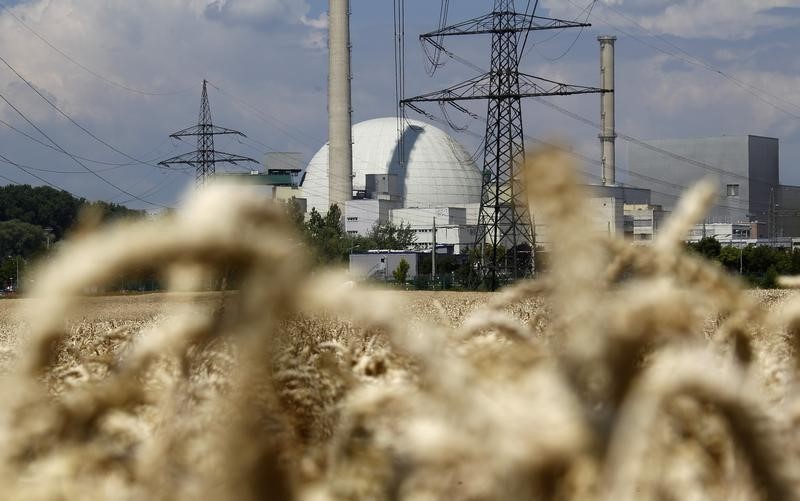BERLIN (Reuters) - The bill for shutting down Germany's nuclear power plants and building a safe disposal site for nuclear waste could rise to 70 billion euros (50.3 billion pounds), the head of a government commission told daily Frankfurter Rundschau in an interview
E.ON (DE:EONGn), RWE (DE:RWEG), EnBW
A decision by E.ON to restructure its business and spin off its conventional power plants raised additional fears that taxpayers may end up footing a portion of the bill for dismantling the nuclear plants and storing waste.
"There are significant financial risks coming up for the state," said Michael Mueller, head of the government's task force charged with finding a disposal site for nuclear waste.
The costs for the nuclear exit could rise to up to 70 billion euros over the next decades, meaning that the 36 billion euros ($42 billion) in provisions set aside by the four nuclear operators were not sufficient, he added.
Spokesmen from E.ON and EnBW said in separate statements that the companies' provisions were sufficient and that they were certified on a regular basis by external auditors.
Economy Minister Sigmar Gabriel has told lawmakers from his centre-left Social Democrat (SPD) party that he wants to look into creating a public body to oversee the multibillion-euro risks associated with the nuclear switch-off.

The government is sounding out the option of subjecting the balance sheets of the four nuclear power plant operators to a stress test to ensure their provisions are adequate.